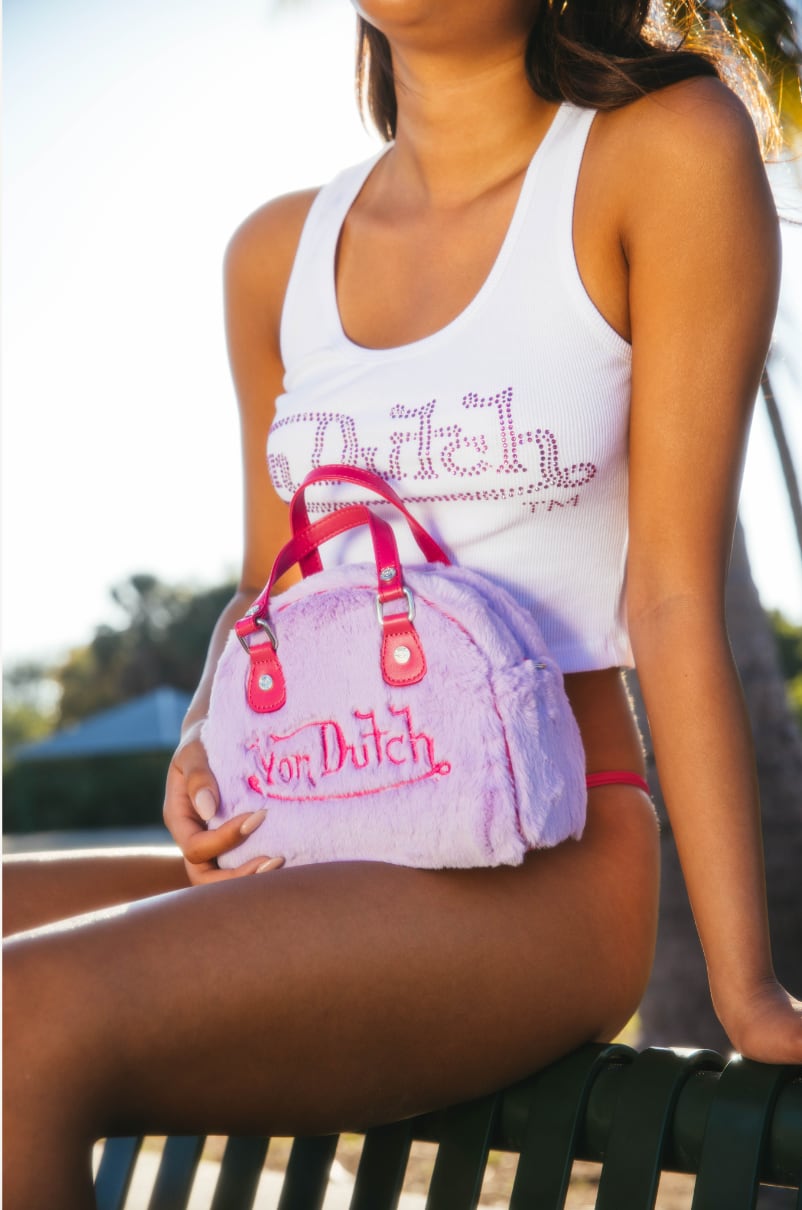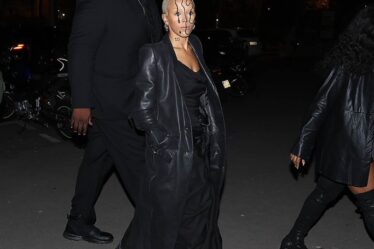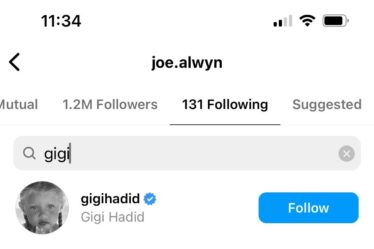
The Y2K resurgence isn’t over yet.
At least, that’s what Von Dutch’s new owners hope. Today, White Space Group, a newly-formed New York-based brand management company announced it acquired the aughts-favourite brand, which had been owned by French footwear company Groupe Royer since 2009. The terms of the deal were not disclosed.
White Space’s hope is to turn Von Dutch’s latest spurt of online relevance into sustained sales. WSG Brands’ priorities are to build up its US business (currently, 90 percent of sales come from overseas), energise its marketing with fresh collaborations and global campaigns centred around its American heritage, and ink relationships with the right partners.
“[The brand has] the cultural relevance, global brand awareness and the ability to be licensable,” said Marc Benitez, WSG Brands’ chief operating officer, who has served as president of Century 21 Stores and in business development roles at Authentic Brands Group and CAA’s brand management group. “When you couple those parameters with the movement of Y2K brands and what they represent to a younger generation, all the stars aligned.”
It’s just the latest 2000s fashion favourite that is attempting to ride the wave of the Y2K comeback through licensing deals — and it has led brands like Ed Hardy and Juicy Couture to recapture their former relevance. Licensing comes with challenges: While it can be lucrative, it forces the owner to give up a degree of control over a brand’s appearance, production, quality and distribution, said Sonia Lapinsky, managing director at retail consultancy Alix Partners.
“Growing a brand is a hard equation anyway. It’s hard when you’re rebuilding, it’s hard when you have a licensor element and the margin is spread more widely” she said.
The Rise and Fall of Von Dutch
Von Dutch is synonymous with its famed trucker hats, a must-have accessory of the 2000s worn by the likes of Justin Timberlake, Brittany Spears and Gwen Stefani. Von Dutch had a fast rise, reaching over $33 million in annual sales in 2003, only four years after it was founded. Its hats and logo-ed tank tops were omnipresent in pop culture — until, suddenly, they weren’t.
“You saw it everywhere. It used to be cool people wearing it, then all of a sudden this cheesy, random crowd started wearing it,” Paris Hilton, one of the most iconic Von Dutch wearers of the aughts, said Hulu’s 2021 Documentary “The Curse of Von Dutch: A Brand to Die For.” “I remember one day I looked in my closet and I had so much Von Dutch, and I just couldn’t look at it anymore. I got rid of everything.”
What was left of the brand — after a much-publicised slew of controversies — was purchased by Groupe Royer in 2009. They’ve rolled out a few comeback attempts, including several international licensing partnerships. Last year, it introduced a new prestige-priced sub-label, Von Dutch Paris, in a bid to take the brand more up-market.
Lately, Von Dutch has seen somewhat of a boost in cultural relevance. As TikTok has helped propel Y2K trends like pleated miniskirts, low-rise denim, flip-flops and even butterfly clips back into the fashion discourse, nostalgia has driven people to take another look at Von Dutch. Bella Hadid was papped carrying a red Von Dutch bowling bag last year, while internet sensations Emma Chamberlain, Addison Rae and rapper Megan Thee Stallion have worn the brand, too. Charli XCX even released a song called “Von Dutch” in February. Mentions of Von Dutch on social media were up nearly 13,000 percent over the past year, according to analytics firm Trendalytics. Searches for “Von Dutch” and “trucker hat” on Depop are up 40 percent and 90 percent from January.
The timing, in that sense, is likely about as favourable as it can be.
“Now you have the opportunity to capitalise on who remembers it from the early 2000s, and bring it to the young consumers interested in that time frame now,” said Benitez.
Bringing It Back
Getting the positioning right is the brand’s biggest challenge.
In recent years, Von Dutch has focused on international markets, but the brand’s products, distribution and presentation look slightly different in every geography they’re sold in — in Europe, there’s a greater emphasis on fashion-led, everyday street style, while in Indonesia Von Dutch leans heavily into its association with motorsports.
With WSG’s purchase bringing Von Dutch back under American ownership, the company plans to prioritise the US once again, and unify the look and pricing across markets. For instance, hats currently sit at around $90 in the US and €35 ($37) in France. To ramp up the business in the US, Benitez said, Von Dutch will establish wholesale relationships; currently, most of the stateside business is direct-to-consumer.
“Our goal is to tone it down and make it much more attractive to the everyday consumer,” said Benitez.
In marketing and visuals, Von Dutch will also return to its roots, and plans to emphasise Americana in upcoming campaigns.
Already, WSG has hired a brand manager and is working with licensees C-Life, which creates T-shirts for ACDC, MTV and Star Wars and works with retailers including Pacsun, Forever21 and Fashion Nova; and Supply Accessories, which makes hats for Hurley and Life is Good and works with Lids, Macy’s and Nordstrom.
While the idea of Von Dutch may be more in vogue, it’s unclear if that’s translated to demand for the brand. Conversation around Von Dutch jumped when Hulu released its documentary in 2021, but searches quickly returned to their baseline, according to Trendalytics. Von Dutch’s Instagram followers have grown just 3 percent in the past three years, and 82 percent of posts about “Von Dutch” in the past year were related to CharliXCX, said Trendalytics. (WSG declined to share sales figures.)
WSG will have to build desirability and tap the right partners to sustain interest in a brand that has come and gone — a few times over.
“We intend on this brand having staying power, we’re not just focused on a specific time-sensitive movement,” said Benitez. “But we’re capitalising on that time sensitive opportunity.”



